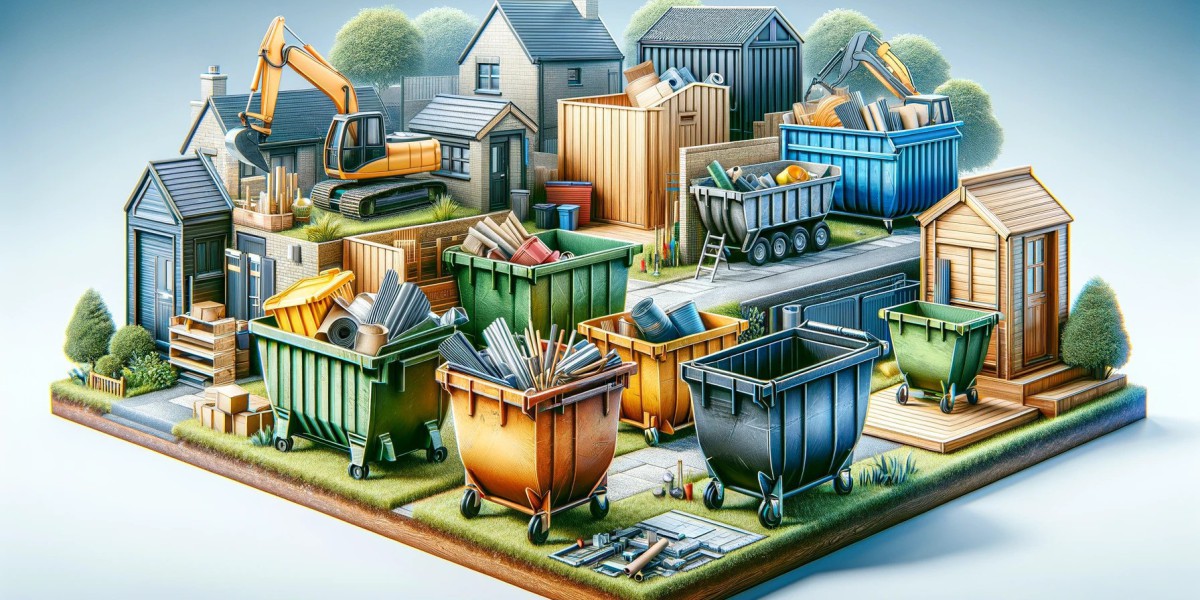Steel Skip Bins
Steel is one of the most common materials used in the construction of skip bins. Steel skip bins are renowned for their durability and strength, making them suitable for handling heavy and dense waste materials. These bins are ideal for construction sites, industrial projects, and other settings where robust waste management solutions are needed.
The primary advantage of steel skip bins is their ability to withstand harsh conditions. They are resistant to damage from heavy impacts and can handle sharp or abrasive waste without getting damaged. However, steel bins can be prone to rust if not properly maintained. Regular cleaning and proper storage can help extend the lifespan of steel skip bins, ensuring they remain in good condition over time.
Plastic Skip Bins
Plastic skip bins offer a lightweight alternative to their steel counterparts. Made from high-density polyethylene (HDPE) or similar materials, plastic bins are easy to transport and handle. These bins are particularly useful for household waste, garden waste, and lighter materials that don’t require the strength of steel.
One of the key benefits of plastic skip bins is their resistance to corrosion. Unlike steel, plastic does not rust, making these bins ideal for environments with high moisture levels. Additionally, plastic skip bins are often designed with UV inhibitors to protect them from sun damage, ensuring they maintain their structural integrity over time. However, plastic bins may not be as durable as steel bins when it comes to handling very heavy or sharp waste.
Composite Material Skip Bins
Some skip bins are made from composite materials, combining the best properties of different substances to create a versatile and durable product. Composite bins can include a mix of plastic, fiberglass, and other materials to provide enhanced strength and resilience. These bins are designed to offer a balance between the lightweight nature of plastic and the durability of steel.
Composite skip bins are often used in specialized applications where specific properties are required. For example, they may be used in environments with extreme temperatures or chemical exposure, where traditional materials might fail. The main advantage of composite bins is their adaptability, but they can be more expensive than single-material options.
Wooden Skip Bins
Wooden skip bins are less common but can be used for certain types of waste management. These bins are typically made from treated timber and are used for specific purposes, such as handling organic waste or garden debris. Wooden bins are biodegradable and can be a more environmentally friendly option for short-term use.
The primary advantage of wooden skip bins is their sustainability. They can be made from renewable resources and are often easier to dispose of at the end of their life cycle. However, wooden bins are not as durable as other materials and may require more frequent replacement. They are also susceptible to damage from moisture and pests, which can limit their usefulness in certain conditions.
Environmental Impact of Skip Bin Materials
The material composition of skip bins can have a significant impact on the environment. Steel bins, while durable, require substantial energy to produce and can contribute to carbon emissions. Plastic bins, although resistant to rust, are made from petroleum-based products and can contribute to plastic pollution if not properly managed.
Choosing environmentally friendly skip bin options can help mitigate these impacts. For example, using recycled materials for bin construction can reduce the demand for new resources and lower the carbon footprint. Additionally, ensuring that bins are properly maintained and recycled at the end of their life cycle can minimize environmental harm. Considering the environmental impact of skip bin materials is an important aspect of responsible waste management.
Maintenance and Longevity
The longevity of a skip bin is closely tied to its material composition and how well it is maintained. Steel bins require regular maintenance to prevent rust and damage. This includes cleaning the bin after each use and storing it in a dry location. Applying protective coatings can also help extend the life of a steel skip bin.
Plastic bins, while resistant to rust, can degrade over time due to UV exposure and physical wear. Regular inspections and maintenance can help identify and address any damage early, ensuring that the bin remains functional. Composite bins may require specialized care, depending on the materials used. Understanding the maintenance needs of your skip bin can help ensure that it remains in good condition and provides reliable service.
Cost Considerations
The cost of skip bins can vary significantly based on their material composition. Steel bins tend to be more expensive due to their durability and strength. However, they can be cost-effective in the long run due to their longevity and ability to handle heavy waste. Plastic bins are generally less expensive upfront but may require more frequent replacement if used for heavy or sharp materials.
Composite bins, while often more costly, offer a balance of durability and lightweight construction that can be worth the investment for specialized applications. Wooden bins are typically the least expensive but may not be suitable for all types of waste. Considering the cost and expected lifespan of a skip bin can help you make an informed decision that meets your budget and waste management needs.
Choosing the Right Skip Bin for Your Needs
Selecting the right skip bin involves considering the type of waste you need to dispose of and the specific requirements of your project. For heavy and dense waste, a steel skip bin is often the best choice due to its strength and durability. For lighter waste, plastic bins can provide a cost-effective and easy-to-handle option.
For projects requiring a mix of properties, composite bins offer a versatile solution. If sustainability is a priority, wooden bins or bins made from recycled materials can be a good choice. Customizable bins can also provide tailored solutions for unique waste management needs. By understanding the material composition and benefits of different skip bins, you can choose the best option for your project.
In short, the material composition of skip bins plays a crucial role in their functionality, durability, and environmental impact. Whether you’re dealing with heavy construction waste, household rubbish, or specialized materials, choosing the right skip bin can make a significant difference in the efficiency and effectiveness of your waste management process. For those in need of reliable service, skip bin hire Baldivis offers a range of options to suit various needs.








